|
| |
|
The Arniston Memoirs
Three centuries of a Scottish House 1571 -
1838, edited from Family Papers by George W T Omand |
|
Preface
Many years ago, in the course of some building
operations, the Charter-Room at Arniston was dismantled. Its contents,
consisting of charters, rent-rolls, leases, accounts, and valuable
family papers, were placed on the floor of an attic where, for a long
time, they lay in confusion, uncared for, and in constant danger of
destruction. About twenty years ago Dr. William Fraser, who was then
beginning those researches which have thrown so much fresh light on the
family history of Scotland, was requested by Mr. Dundas to give his help
in examining the Arniston papers. Dr. Fraser arranged the charters,
making a copious inventory of them, in which everything of local or
family interest was described. He also deciphered the old estate,
family, and colliery accounts down to the middle of the seventeenth
century. The results of Dr. Fraser's labours suggested the idea of a
family history to Mr. Dundas, who accordingly
proceeded to arrange the letters
and estate accounts, and compile a
narrative from them to be
left in the Charter-Room at Arniston in
manuscript for the private use of the family.
There had been no intention of publication;
but friends who had an opportunity
of examining the materials thus collected
by Mr. Dundas were of
opinion that they were worthy of preservation in a
more permanent form; and I
was requested to undertake
the task of weaving them into a
continuous narrative and editing the volume
of family history which is now published
under the name of the Arniston
Memoirs.
As originally planned, the work included a memoir of
Henry Dundas (the celebrated Viscount Melville),
who was a younger son of the
first President Dundas. But it became apparent, as
the work proceeded, that a complete account of his
career, which, in some of its most interesting and
important aspects, was that of a British
Minister, could not be given
without entering upon a variety of subjects inconsistent with the
scope of the present volume. It has, therefore,
been decided to omit the
correspondence at Arniston between
Henry Dundas and his brother
and nephew. This correspondence, which extends
over a large part of his public life, together with the
voluminous collection of papers at Melville
Castle, will form the groundwork of a separate
work on the Life of Henrv Dundas.
G. W. T. O.
May 1887.
Contents
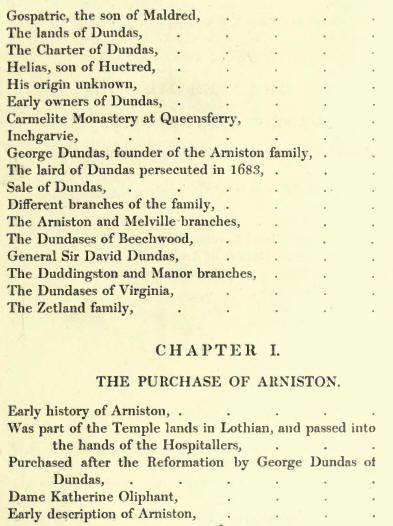
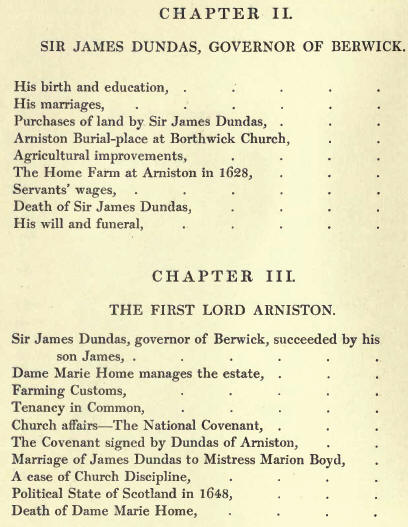
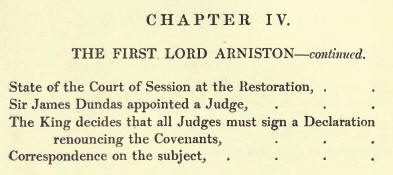
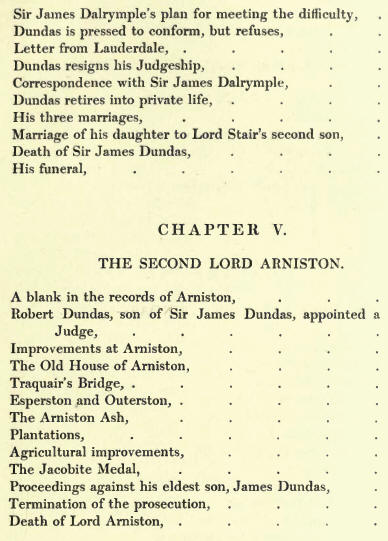
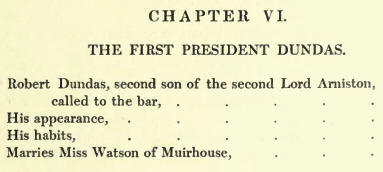
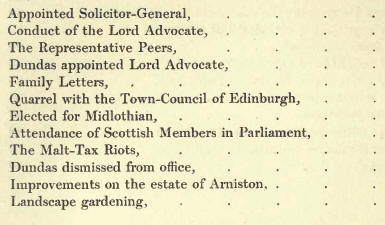
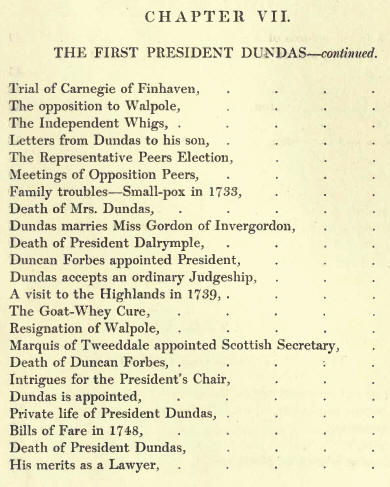
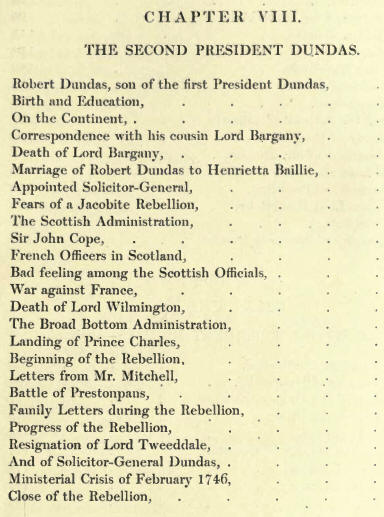
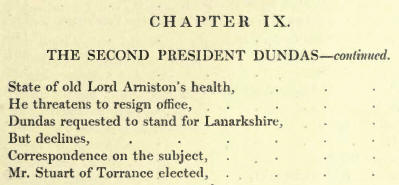
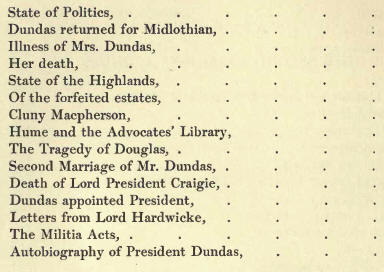
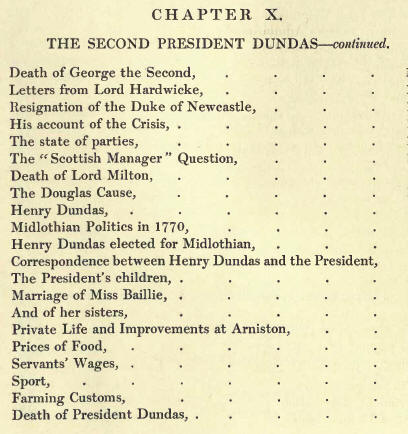
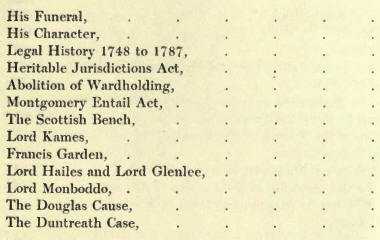
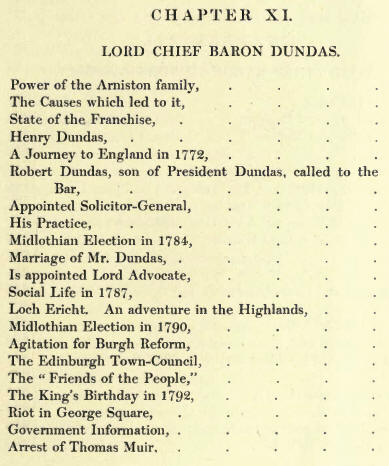
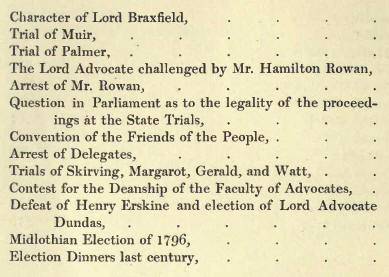
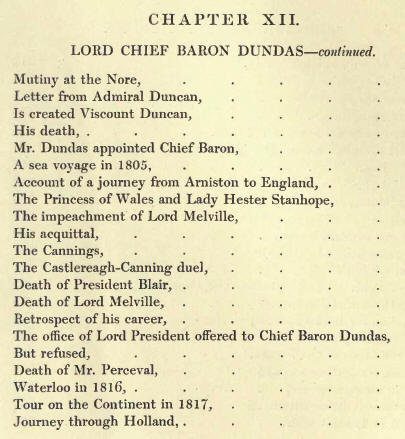
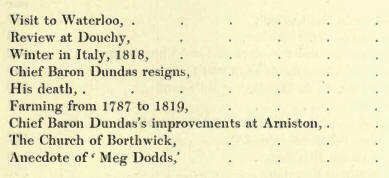
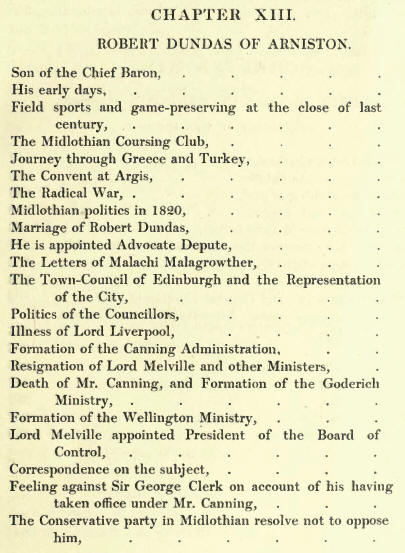
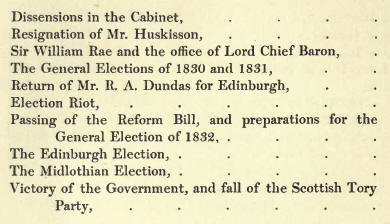
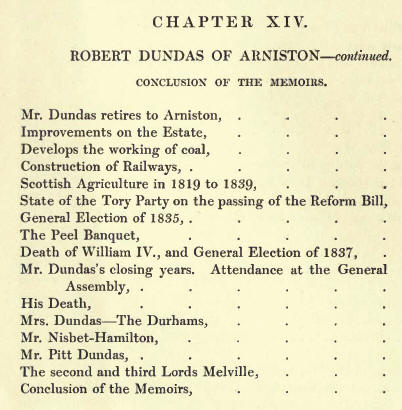
You can
download this book here!
Henry Dundas, Viscount Melville
Political manager of Scotland, statesman, administrator of British India
by Furber, Holden, 1903
IN St Andrew Square, Edinburgh,
the passer-by may see standing on a lofty pillar the statue of
Henry Dundas, first Viscount Melville, the
colleague and friend of the younger Pitt. The
towering height of the monument is itself
emblematic of the lofty position held by Dundas in
his native country at the end of the eighteenth century. For many years
he exercised in Scotland a sway so absolute that
he was nicknamed "Harry the Ninth."
The heaven-soaring statue proclaims to the world
how great was his position in the eyes of his contemporaries.
Beginning as Lord Advocate, he filled in a succession of British
Governments the most important offices, and played an outstanding part
in the history of his time. No Scottish lawyer has ever attained an
influence or authority equal to that enjoyed by. Dundas. In the days of
his greatness, the very streets of Edinburgh, as Sir Walter Scott said,
were thought almost too vulgar for him. to walk upon. His
word was law; his will was absolute. He was "the Pharos of
Scotland," said Lord Cockburn. "Who steered upon him
was safe, who disregarded his light was
wrecked. It was to his nod that every man owed
what he had got, and looked for what he wished."
The present writer has been for
years an interested student of the work and career of this remarkable
man, and he has ventured in the following pages to give
some account of his character and surroundings. To
tell the complete story of his life is not at present possible,
nor is that the object of this sketch. Until the voluminous papers and
documents at Melville Castle, the home of Dundas,
and at Arniston, in Midlothian, the home of his
ancestors, are rendered accessible to research, no biography is
possible. In 1887 Mr George Omond published a
history of the family of Dundas of Arniston, and
stated that, as originally planned, the work included a
memoir of its most distinguished member. He added, however, that
it was afterwards decided to omit his letters at Arniston, and to
make them, with the papers at Melville Castle, the
groundwork of a separate biography of Dundas. This has never been done
and, until those papers and the numerous other documents at the Record
Office and elsewhere are examined or published, it would be idle to
attempt a complete account of Dundas's career. The
object of the writer, therefore, in view of what has been said, is, from
the materials now available, to delineate a
character rather than to unfold a history; to portray a personality
rather than to describe a political career. Even
in doing so, he is perhaps writing the truest biography. It has been
said that Plutarch is the greatest of biographers, because his object
was to make a living portrait of a man's inner
nature rather than to write the annals of his external acts. "I am not
writing Histories, but Lives," he said. "Very
often an action of small note, a short saying, or a jest, shall
distinguish a person's real character, more than the greatest sieges, or
the most important battles." The aim of the
present writer, whether successful or not, is to depict
somewhat in the spirit of Plutarch the foremost Scotsman of the
eighteenth century. He makes no apology for his
work. Everything is of interest that deals with the marvellous galaxy,
which sparkled and flourished in that wonderful time. We read in The
Young Duke how, when Lord
Seymour Temple began a story at White's about
Fox and General Fitzpatrick, there was a general
retreat, "and the bore," adds the novelist, "as
Sir Boyle Roche would say, like the last rose of
summer, remains talking to himself." Are there not many of us
who would tolerate even bores to-day, if the
staple of their talk was stories about Fox and
Fitzpatrick and the other statesmen of that brilliant age?
J. A. LOVAT-FRASER.
You can
download this book here! |
|
